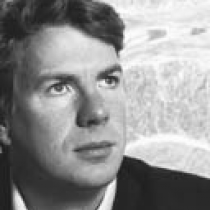Dr. Markus Schmidt

Dr. Markus Schmidt absolvierte nach einer HTL-Ausbildung in Biomedizinischer Technik (1994) das Studium der Biologie, Zoologie und Ökologie an der Universität Wien und der Universität Autonoma de Madrid. Im Rahmen seiner Diplomarbeit (2001) untersuchte er eine komplexe Ameisen-Pflanzen-Symbiose im tropischen Regenwald Costa Ricas. Das 2005 abgeschlossene interdisziplinäre Doktorat widmete sich dem Thema „Verlust der Agrobiodiversität in Vavilov-Zentren, mit spezieller Berücksichtigung genetisch veränderter Pflanzen“ mit Forschungsaufenthalten in Südafrika und Portugal und einer Zusammenarbeit mit dem Botanischen Institut in Peking, China.
Zunächst als Mitarbeiter der Universität Wien (bis 2007), später als Mitgründer der außeruniversitären Forschungseinrichtung „Organisation for International Dialog and Conflict Management (IDC)“ und seit 2010 als Gründer der Biofaction KG, einer Forschungs-, Technikfolgen- und Wissenschaftskommunikations-Firma in Wien, beschäftigt er sich in seiner wissenschaftlichen Arbeit mit den gesellschaftlichen Auswirkungen neuer Biotechnologien. Er koordinierte in diesem Zusammenhang mehrere EU Projekte, z.B.: “DIVERSEEDS: Networking on conservation and sustainable use of plant genetic resources in Europe and Asia" (2006-2008); “SYNBIOSAFE: Safety and ethical aspects of synthetic biology” (2007-2008) und nationale Projekte „CISYNBIO: Cinema and Synthetic Biology“ (2009- 2012); SYNMOD: Synthetic biology to obtain novel antibiotics and optimized production systems (2009-2013), bzw. nahm an mehreren europäischen und nationalen Forschungsprojekten teil: “COSY: Communicating Synthetic Biology” (2008-2010); “TARPOL: Targeting environmental pollution with engineered microbial systems á la carte.” (2008- 2010); "METACODE: Code-engineered new-to-nature microbial cell factories for novel and safety-enhanced bio-production" (2011-2015); und „MYCOSYNVAC: Engineering of Mycoplasma pneumoniae as a broad-spectrum animal vaccine“ (2015-2020).
Dr. Schmidt ist Herausgeber zweier Bücher zur synthetischen Biologie, Autor zahlreicher Fachartikel im Bereich der pflanzengenetischen Ressourcen, synthetischen Biologie, Xenobiologe, Biosicherheit, Technikfolgenabschätzung, der öffentlichen Wahrnehmung neuer Technologien sowie der Interaktion zwischen Kunst und Wissenschaft.
Aufgrund seiner Expertise wurde er mehrmals als wissenschaftspolitischer Berater eingeladen, z.B. von der European Group on Ethics (EGE) der Europäischen Kommission, der US Presidential Commission for the Study of Bioethical Issues, dem J Craig Venter Institute, der Alfred P. Sloan Foundation, und dem Bioethikrat des deutschen Bundestags. Zwischen 2013 und 2015 war er Teil der Arbeitsgruppe des Scientific Committee on Emerging and Newly Identified Health Risks (SCENIHR) der europäischen Kommission, die mehrere zukunftsweisende Publikationen zur synthetischen Biologie erarbeitet hat.
Weiters bemüht sich Schmidt für eine bessere Interaktion zwischen Wissenschaft und Gesellschaft im Rahmen öffentlicher Vorträge und der Produktion wissenschaftlicher Dokumentarfilme (gemeinsam mit Camillo Meinhart). Seit 2009 befasst sich Markus Schmidt als Initiator und Produzent von Wissenschaftsfilmfestivals (BIO·FICTION), Bio-Kunst- Austellungen (synth-ethic), Labor-Workshops für Künstler und Designer (Making Life), der Do-It-Yourself Biologie Gruppe Pavillon35, und als Moderator bei künstlerischen Arbeitsaufenthalten in Biotech-Laboren, auch intensiv mit der kreativen Nutzung neuer Biotechnologien.
Synopsis
FUTUREBODY: Speculative Techno-Biology
Artificial Intelligence AI represents a form of information processing that is largely decoupled from biological systems. It is not impossible that AI will one day act partly or even completely independent of human control. At the same time the importance of AI in shaping synthetic life forms is constantly increasing. This means that we have, on the one hand, a divergence of organic and in-organic intelligent systems that could lead to a new form of machine wilderness, while on the other hand, previously wild organism will be tamed, standardized and programmed with the help of machines. In this context of animated technologies and engineered life, the question is: How will the bodies of the future look like?
So far, this question has only been tackled by a few artists and in particular science fiction authors. Also, some brave evolutionary biologists risked their professional reputation and created the field of Speculative Biology in order to explore future evolutionary paths. Speculative Biology, however, doesn't bear the mechanisation of life in mind. Navigating at the interface of art, science, engineering and philosophy, it is time to devote ourselves to Speculative Techno-Biology.
Alle Sprecher
- Yasser Almaamoun
- Thorsten Bauer
- Sergey Biniaminov
- Christopher Coenen
- Prof. Ina Conradi
- Prof. Dr.-Ing. Barbara Deml
- Hon. Prof. Joséphine Derobe
- Florian Dohmann
- Felix Gaedtke
- Diego González-Zúñiga
- Prof. Lisa Gotto
- Dr. Lily Hibberd
- Prof. Johan Frederik Hartle
- Dr. Rocio von Jungenfeld
- Sönke Kirchhof
- Mario Klingemann
- Dr. Elias Knubben
- Dr. Sebastian Knorr
- Prof. Verena Kraemer
- Prof. Susanne Kriemann
- Dr. Barbara Kuon
- Prof. Frederic Fol Leymarie
- Roman Lipski
- Anja-Maria Meister
- Prof. Galina Mihaleva
- Prof. Dr. Eduardo R. Miranda
- Lauren Moffatt
- Prof. Julian Oliver
- Prof. Dr. Dr.-Ing. Jivka Ovtcharova
- Gülsel Özkan
- Prof. Matteo Pasquinelli
- Prof. Vesna Petresin
- Prof. Dr. Mark Post
- Oliver Rack
- Prof. Elke Reinhuber
- Prof. Christiane Riedel
- Dr. Ralf Schäfer
- Prof. Benjamin Seide
- Dr. Markus Schmidt
- Kathleen Schröter
- Prof. Aljoscha Smolic
- Prof. Vibeke Sorensen
- Prof. João Tabarra
- Cyril Tuschi
- Holger Volland
- Dr. Lioudmila Voropai
- Yulu Wang
Kontakt
Interesse? Fragen?
Rufen Sie uns an:
+49 (0)721 / 8100 6001
oder schreiben Sie uns:
info@beyondfestival.com




